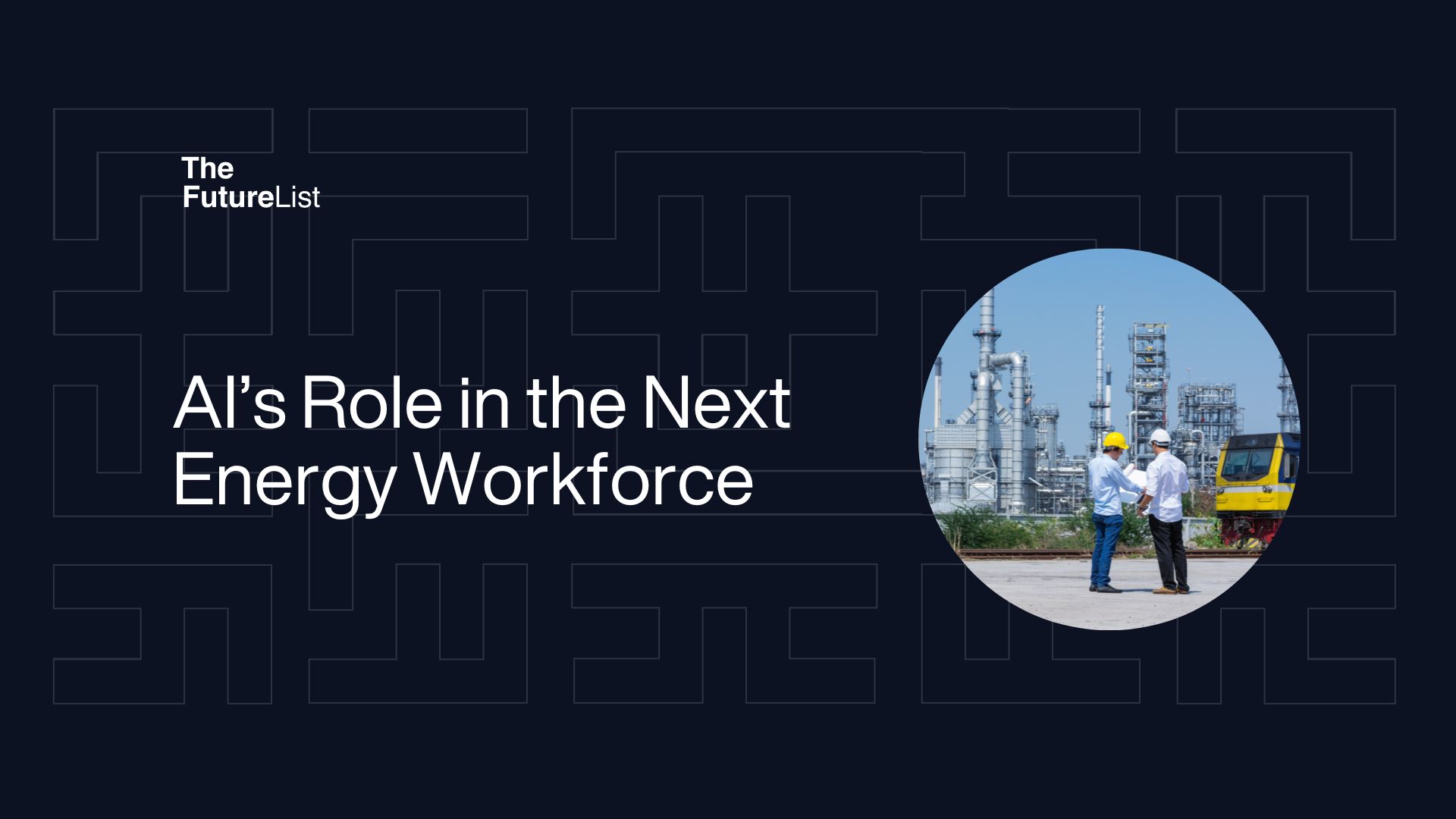
AI’s Role in the Next Energy Workforce
By Eric Kamande
The oil and gas industry has never been short on complexity. From volatile commodity prices to aging infrastructure and high-stakes operations, it’s a sector where every decision carries weight. But while innovation headlines have often focused on energy transition or green hydrogen, something quieter, deeper, and arguably more transformational is underway: the rise of vertical AI platforms reshaping how the industry thinks, learns, and operates.
Two companies, in particular, are leading this shift: Collide in the United States and Applied Computing in the United Kingdom. While they differ in their approaches, both are tackling one of the industry’s most persistent and under-acknowledged challenges: the knowledge gap.
A Looming Brain Drain
Oil and gas are facing a demographic cliff. As the World Petroleum Council and the Energy Workforce & Technology Council have long warned, the retirement of Baby Boomers is accelerating, with institutional knowledge departing every day. A 2019 study by the Society of Petroleum Engineers indicated that over 50% of technical professionals would retire within the next 7 years. Meanwhile, Gen X, often the backbone of digital transformation, is underrepresented in oil and gas, creating a vacuum that neither Millennial nor Gen Z professionals are fully prepared to fill.
The result is not just a skills gap, but a decision-making gap. Operational wisdom, hard-earned safety insights, and real-world troubleshooting experience are all at risk of disappearing. As noted in a 2020 report by the World Economic Forum, “data may be the new oil, but knowledge is the new infrastructure.”
Enter Collide: An AI-Native Knowledge Hub
Founded by industry veterans Collin McLelland and Chuck Yates, Collide began as a community platform for petroleum engineers, geoscientists, and field operators. But it quickly evolved into something more powerful: a vertical AI platform tailored for the energy sector.
Unlike general-purpose AI platforms, Collide combines retrieval augmented generation (RAG), large language models (LLMs), and a curated industry-specific knowledge base to deliver insights with real citations. It taps into technical papers, internal SOPs, and Q&A discussions to surface trustworthy answers at speed.
With over 6,000 users across 122 countries, Collide estimates it saves petroleum engineers between 25% to 33% of their time by streamlining information retrieval and synthesis. For energy companies facing tight margins and tight deadlines, that’s not just helpful—it’s transformative.
Applied Computing: Making AI Explainable in the Field
On the other side of the Atlantic, Applied Computing is betting on multi-foundation AI to modernize industrial operations. Its flagship platform, Orbital, is purpose-built for downstream environments like oil refineries and petrochemical plants, where data is messy, models must be explainable, and downtime is expensive.
Founded by Callum Adamson and Dr. Sam Tukra, the company recently raised €10.7 million in seed funding to advance Orbital’s capabilities. The platform fuses language, time-series, physics, and chemical engineering models into a real-time, on-premise solution that optimizes plant performance without requiring data to leave the site.
The payoff? In live deployments, Orbital has achieved up to 75% cost savings versus traditional cloud analytics platforms and outperformed legacy software by 90% in key benchmarks. With rising energy demand and infrastructure averaging 50+ years in age, Applied Computing sees its mission as clear: don’t just replace heavy industry, make it smarter.
From Compliance to Intelligence
A 2023 knowledge management paper published by OGCI (Oil and Gas Climate Initiative) highlighted a startling reality: over 60% of industrial knowledge is still shared informally or locked in siloed legacy systems. Both Collide and Applied Computing are aiming to flip that model, embedding intelligence into workflows, making safety and operational insights searchable, and enabling generational knowledge transfer at scale.
This evolution matters because knowledge in the oil and gas industry isn’t just technical; it’s also cultural. From rig safety protocols to local environmental compliance, the real power of AI lies not in automation but in amplification, making expertise more accessible, contextual, and resilient.
For an industry often criticized for moving slowly, the rise of vertical AI platforms is surprisingly swift. But it’s not hype-driven. Instead, it’s rooted in solving deep, persistent problems that have quietly cost billions in lost time, inefficiency, and human error.
Get innovation insights from The FutureList weekly. Subscribe to our newsletter here
Categories
- Agritech
- Artificial Intelligence
- Biotech
- Blockchain
- Climate Tech
- Data Infrastructure
- Edtech
- Events
- Fashion
- Fintech
- Healthtech
- Infrastructure
- Innovation Memos
- Innovation Scout Program
- Insight
- Insurtech
- Machine Learning
- Martech
- Mobility
- Music and Media
- Partner Offers
- Perks
- Procurement
- Proptech
- Retailtech
- Ridehailing
- Ridesharing
- Robotics
- Space Aviation
- Supply Chain
- Talent
- Telecoms
- Uncategorized
- Venture Capital
- Wastetech
- Women In Tech
Recent Posts
- The Rise of Rugged Tech: Why IoT Hardware Built for Africa Looks Different
- How Software Is Re‑Wiring the First Minutes of an Emergency
- Crafting Customised Virtual Networks for the 5G Era and Beyond with Network Slicing
- Understanding FDA Medical Device Classes and Why They Matter
- The Rise of Physical AI: Intelligence Moving Into the Real World